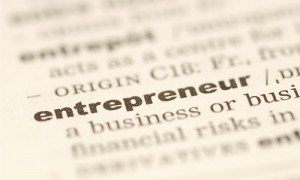 When I did my coursework for my Ph.D. in Business Administration, one of the things that initially surprised me was how academics couldn’t agree on seemingly simple definitions for terms such as Entrepreneur or Family Business.
When I did my coursework for my Ph.D. in Business Administration, one of the things that initially surprised me was how academics couldn’t agree on seemingly simple definitions for terms such as Entrepreneur or Family Business.
I quickly realised that the definition of the word, theme or concept determines HOW you’re going to study or research it, so it becomes a circular argument that creates a lot of academic debate – most of it beneficial and some frankly wasteful and redundant.
That’s why, when I recently came across the definition of an entrepreneur by Howard Stevenson – one of the field’s most prominent researchers, I thought it worthy of sharing with you even though it was conceived almost 40 years ago.
It’s a timeless definition that might take some reflection to fully appreciate.
” Entrepreneurship is the pursuit of opportunity
without regard to resources currently controlled.”
Too many people associate entrepreneurs with risk taking. Entrepreneur don’t get up in the morning saying “Where’s the most risk in today’s economy and how can I get some?”
With this definition that focused on entrepreneurship as a process, Stevenson’s definition opened the term to all kinds of people. Plus, it matched the one demographic fact Harvard Business School researchers already knew about entrepreneurs—they were more likely to start out poor than rich.
“They see an opportunity and don’t feel constrained from pursuing it because they lack resources,” explains Stevenson. “They’re used to making do without resources.”
The perception of opportunity in the absence of resources helps explain much of what differentiates entrepreneurial leadership from that of corporate administrators: the emphasis on team rather than hierarchy, fast decisions rather than deliberation, and equity rather than cash compensation.
What would you expect, asks Stevenson “When you don’t have the cash to boss people around, like in a corporation, you have to create a more horizontal organization. You hire people who want what you have and not what you don’t have.”
In other words, entrepreneurs offer their team members a larger share of a vision for a future payoff, rather than a smaller share of the meager resources at hand.
When you really think about it, opportunity is the only real resource small (startup) businesses have.
Give it some thought – after all the brightest and sharpest minds are still grappling with this and other definitions…
If you find others that are worth sharing, please share by placing a comment below!

I agree with H. Stevenson’s quote about entrepreneurship. Indeed, a real entrepreneur seizes the opportunity he finds regardless of the resources he has. His aim is to transform this opportunity into something real. A .Lavoisier, a famous French economist and philosopher said “ Rien ne se cree, rien ne se forme, tout se transforme”, meaning, nothing’s created out of nowhere, but a creation comes from transformation.
I believe that it is the power of finance today. Therefore, out of fictitious value, a trader can generate cashflow not necessarily by taking risks randomly, but by having an effective risk management strategy before broking or banking and forecasting the right scenario outcome(s).
To my mind, idle money is useless but when there is a good treasury management (in peculiar when money is placed at the right place and at the right time), value (wealth) is created. And that’s what we do at Finpacific for our clients – create value from the cash that is in their business.